Uncategorized
-
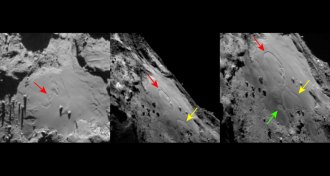 Planetary Science
Planetary ScienceMysterious circles appear, grow on comet
The Rosetta spacecraft caught five circular depressions quickly spreading across a region of comet 67P.
-
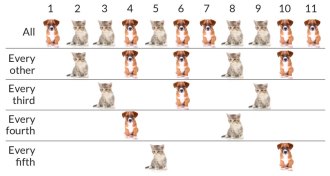 Math
Math83-year-old math problem solved
An 83-year-old math problem concerning sequences of 1s and –1s has been solved.
By Andrew Grant -
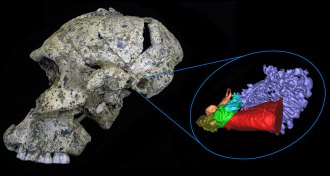 Anthropology
AnthropologyAncient hominid ears were tuned to high frequencies
Two ancient hominid species may have heard high-frequency sounds especially well.
By Bruce Bower -
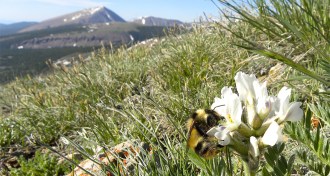 Animals
AnimalsAlpine bee tongues shorten as climate warms
Pollinators’ match with certain alpine flowers erodes as climate change pushes fast evolution.
By Susan Milius -
 Chemistry
ChemistryElusive acid finally created
Cyanoform, a chemical sought for more than a century and written into textbooks, is one of the strongest organic acids.
By Beth Mole -
 Astronomy
AstronomyBlack hole collisions evade detection
The environment in the centers of some galaxies might inhibit gravitational waves radiating from supermassive black holes, a new study suggests.
-
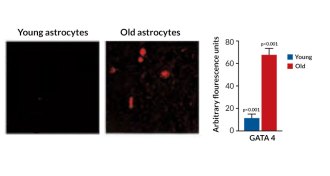 Health & Medicine
Health & MedicineWhat makes cells stop dividing and growing
Scientists have found that the protein GATA4 helps control cellular senescence, and may be a target for treating aging-related diseases.
-
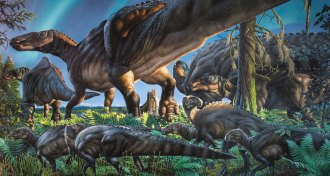 Paleontology
PaleontologyNew dinosaur identified in Alaska
New species of duck-billed dinosaur discovered in the Alaskan permafrost.
By Meghan Rosen -
 Life
LifeFor people, mealtime is all the time
People eat for most of their waking hours, which may affect sleep and weight.
-
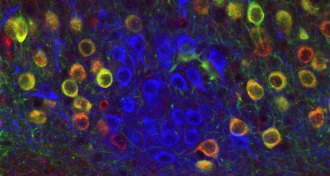 Neuroscience
NeuroscienceSeparate cell types encode memory’s time, place
Cells called ocean cells help store a memory’s “where,” while other cells called island cells help store a memory’s “when.”
-
 Health & Medicine
Health & MedicineHaving sex doesn’t trigger heart attacks, study suggests
Sex doesn’t trigger heart attacks, study of patients with cardiovascular disease suggests.
By Meghan Rosen -
 Anthropology
AnthropologyMore than 9,000-year-old decapitated head discovered in Brazil
Human decapitation goes back more than 9,000 years in the Americas.
By Bruce Bower